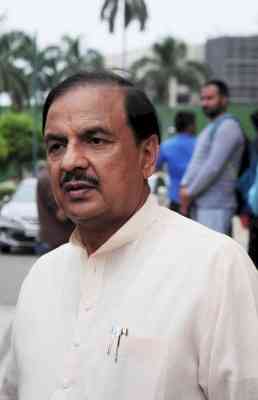A 9 Day Global Meet On “Rethinking Indian Industrialisation of Crafts” to kick off tomorrow

Hyderabad: A Global Meet “Knowledge in Handloom Weaving in India” will be conducted in one of India’s largest weaving-focused towns, Chirala in Andhra Pradesh, disclosed Ravi Kumar Reddy of REEDS in a press note issued in Hyderabad today.
REEDS--Rural Economic and Educational Development Society is a Hyderabad baded Not-for-Profit organization involved in formulating and implementing programs relating to various spheres of rural life. REEDS is a registered Society under the Societies Registration Act XXI of 1860.
The theme of the meet is “Rethinking Indian Industrialisation of Crafts”. It is organised in collaboration with Mr Mohan Rao of National Federation of Handlooms and Handicrafts, Prof Bijker of Maastricht University and Ineke Sluiter of Universiteit Leiden.
It will kick off tomorrow and will go on till 19th November.
The organisers have lined up an impressive line of speakers who include: Uzramma of Malkha, Jaya Jaitly; Jagada Rajagopalan, Consultant; Amita Dhanda, NALSAR; Anique Hamelin, Classics and Ancient History, University of Amsterdam; Ashoke Chatterjee, Prabhat Education Foundation, Ahmedabad; BuYun Chen, Professor, Swarthmore College; Dorothy Ko, Professor of History and Women’s Studies, Barnard College, Columbia University; Ellen Harlizius-Kluck, Research Institute for the History of Technology and Science Deutches Museum, Munich; Rajeev Sethi, Asian Heritage Foundation; Sampat Mukhopadhyay, IIT Delhi; Subir Kumar Saha, IIT Delhi; Ulinka Rublack, Facujty of History, Cambridge University and others
Many Scholars, artisans and other professionals involved in the textile industry are participating in order to better understand and promote futures and livelihoods in handloom weaving informed Ravi.
The handloom industry in India provides livelihoods for 4.3 million families, making it the second largest employer sector in the country after Agriculture
The industry has the potential to create over one million jobs with the lowest per capita investment for creation of such jobs, through building on existing skills and social capital.
The handloom industry employs thousands of people across the state. However, due to certain perceptions regarding handloom cloth, and the necessity of competing with power loom imitations, growth in the sector is severely hindered.
For example, power loom designers can easily copy popular handloom designs and produce them in a cheaper fashion, as designs are not protected by copyright, eating into the demand for handloom cloth.
In order to improve the situation of handloom weavers, it is crucial to improve market and production infrastructure, capacitate weavers and designers to innovate deep craft skills, and provide access to credit and financial support. Designs have to be protected under the intellectual property regime. The system of production can be re-engineered such that the creativity of the weaver can co-exist with the demands of production to the designers taste. Handloom currently services many growing market niches; luxury, ethnic, semi-urban markets for sarees as well as green markets for sustainable goods. The meet is organised against this backdrop.
The meet will provide a roadmap to transform the future of handloom weavers through innovations and network building.

 cityairnews
cityairnews 













